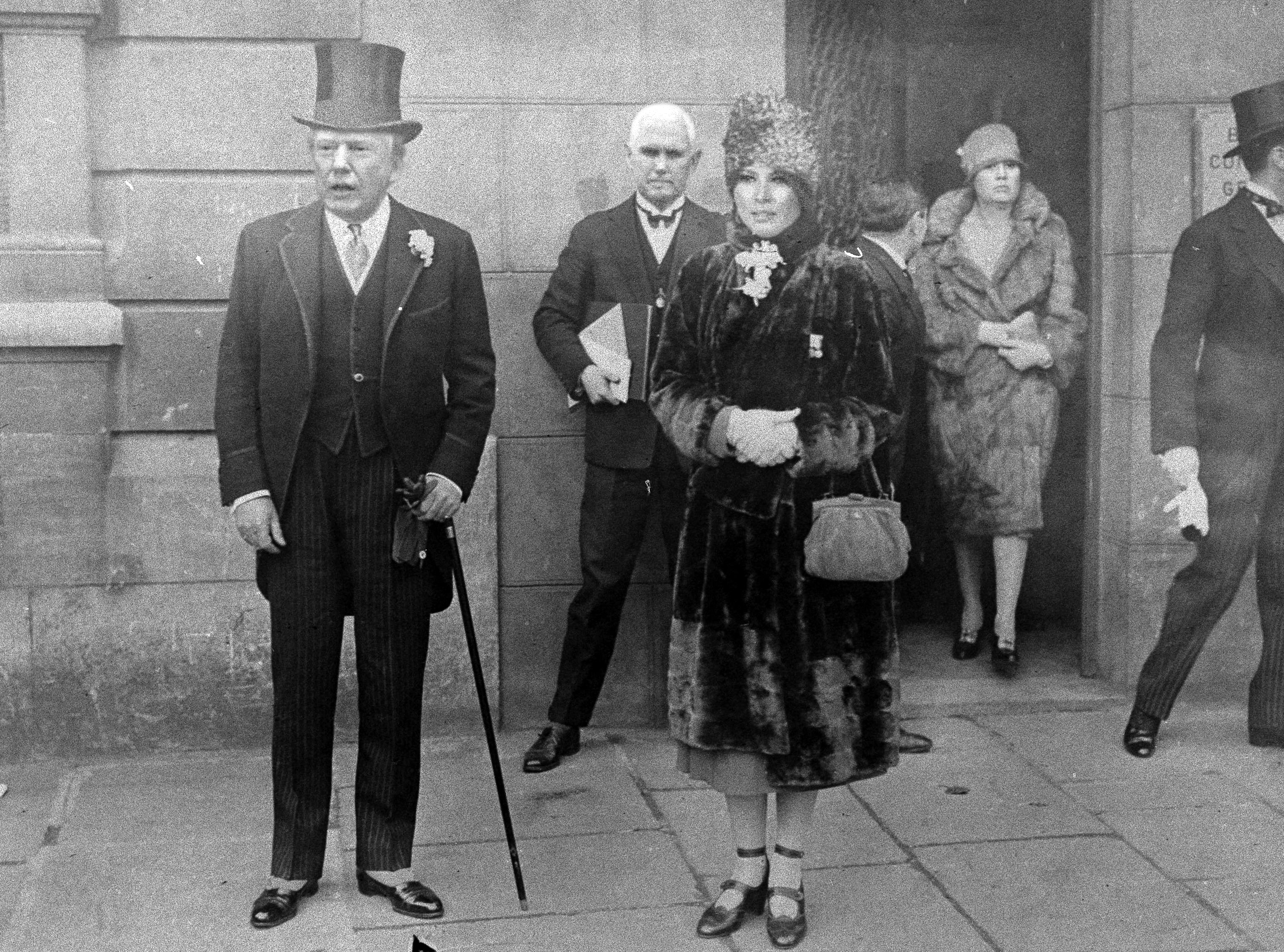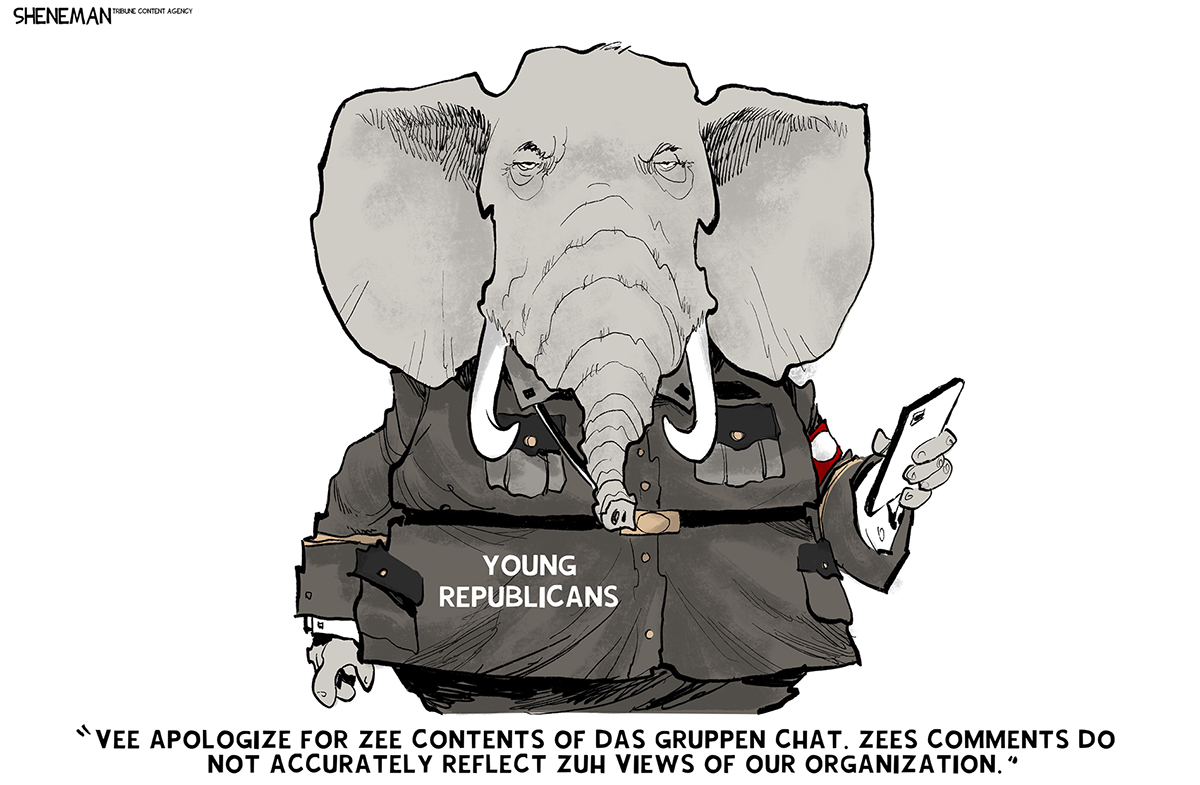The new Republican Gilded Age
Meet the new Republican dystopia, same as the old


The Republican Party has the run of the federal government. What sort of society do they wish to create? The Gilded Age — an often-overlooked period from the mid-1870s to 1900 — provides some important lessons.
The Gilded Age is part of the subject of an important new history by Richard White, The Republic For Which It Stands, the most recent entry in the Oxford History of the United States series. It's both an excellent piece of historical scholarship and an insightful view of what happened the last time the current Republican ideological platform was put into practice.
The basic idea is to reconfigure the American state to serve only the interests of business: forbidding as much regulation of industry as possible, and using violent state power to suppress the inevitable backlash from the rest of society. America once had much of its democratic nature cored out by rapacious capitalists. It could happen again.
The Week
Escape your echo chamber. Get the facts behind the news, plus analysis from multiple perspectives.

Sign up for The Week's Free Newsletters
From our morning news briefing to a weekly Good News Newsletter, get the best of The Week delivered directly to your inbox.
From our morning news briefing to a weekly Good News Newsletter, get the best of The Week delivered directly to your inbox.
1. Capitalist tyranny. The Gilded Age was a time of rapid industrialization, and the concomitant consolidation of gigantic fortunes. Andrew Carnegie in steel, Cornelius Vanderbilt in railroads, J.P. Morgan in finance, and above all John D. Rockefeller in oil — such men built up incomprehensible piles of wealth with monopoly businesses, and therefore enormous political power. (Surrounded by lickspittles and yes-men, and isolated on vast estates, these men also tended to become weird shut-ins — sound familiar?)
Capitalists used their money to bribe politicians en masse to great effect, but probably their most important colonization of state power was through the courts. The vicious, parasitical financier Jay Gould developed the trick of using the judiciary to smash the working class after losing a strike in 1885. He sued one of his railroads with the other, thus driving it into federal receivership and making its workers federal employees. Hey presto, he could get legal injunctions and National Guard troops to smash the next strike in 1886.
The federal judiciary, stacked with capitalist ideologues, then gradually developed a ludicrous reinterpretation of the 14th Amendment as protecting the rights of business. "By making free labor virtually identical with substantive due process, the courts potentially made licensing laws, strikes, boycotts, the closed shop, and even some public health regulations the legal equivalent of slavery," writes White. This would later be formalized by the Supreme Court in Lochner v. New York.
This kind of encasement of the economy outside democratic control is precisely the current Republican plan for the judiciary. The GOP majority seems unable to pass any legislation save a huge tax cut for the rich, but they are stuffing the courts full of reactionary judges who will rule that state economic power is to be exclusively deployed on behalf of capitalists and the rich. For instance, President Trump's recent Supreme Court nominee, Brett Kavanaugh, has held that it's illegal for workers to wear T-shirts disparaging their employer, but also that the Consumer Financial Protection Bureau is unconstitutional. Heads business wins, tails workers and consumers lose.
A free daily email with the biggest news stories of the day – and the best features from TheWeek.com
For a time it was thought that Rockefeller would stand forever as the richest man who has ever lived in the modern age, with an inflation-adjusted fortune of about $360 billion in 1916. But Jeff Bezos' fortune was recently estimated at $150 billion — up from "only" $57 billion just two years ago. It seems highly possible that he (or another of his cohort) will surpass the Rockefeller mark sometime in the near future.
2. Environmental contamination. Businesses often pollute. The Gilded Age was a filthy time, when poison-spewing factories suffocated workers and cities alike. White notes that despite rising real incomes, both life expectancy at 10 years old and average adult height shrank steadily over almost the whole 19th century, brought down by poor nutrition, epidemic disease, and pollution, and only bottoming out in the 1890s. To be fair, the causes of the problem were poorly understood at the time, but efforts towards hygiene and pollution controls required regulation and taxation, and thus ran headlong into business and its ideology of liberal individualism.
Even successful cleanliness programs often increased inequality. Gilded Age Chicago meatpackers, for instance, whose offal had made their neighborhoods and the Chicago River a Stygian hell of disease, threatened to leave the city if they were required to clean up. A hygiene program had to be shouldered by the whole city, and thus "packers gained wealth; most other Chicago residents lost it."
And sure enough, under Republican rule the Environmental Protection Agency has been turned against its stated purpose. Former EPA Administrator Scott Pruitt issued regulations allowing for the use of a pesticide the agency's own research shows causes brain damage in children, suspended new clean water regulations, and delayed rules on chemical plant safety (inspired by the 2013 explosion at a poorly regulated Texas fertilizer factory that killed 15 people and injured over 160).
But the most important example of pollution today is carbon dioxide. All businesses which emit greenhouse gases profit at the expense of society as a whole, by pushing the immense costs of climate change onto others. Naturally, Pruitt axed the Obama-era Clean Power Plan (designed to wrench down emissions over time), and delayed regulations on motor vehicle efficiency.
Pruitt has since resigned, but his successor is by all accounts every bit the capitalist lickspittle he was.
3. Economic instability. The Gilded Age was a time of clockwork economic disaster, as unregulated financial institutions and businesses regularly drove the economy into the ditch. In 1873 and again in 1893, capitalist markets folded in on themselves, creating a general economic panic — and a lack of government ability or will to repair the damage made for ensuing severe multi-year recessions. In both occasions, capitalist defense of the gold standard stopped even halting attempts to address the crisis with monetary stimulus. Unrest caused by mass unemployment and desperation was routinely put down with state violence.
New Deal regulations stopped general financial crises after the 1930s for about 50 years. They started once more in the late 1980s, as financial deregulators in both parties started dismantling those restraints. But it was in 2008 that everyone got clubbed over the head with what happens when you let finance off the chain.
Obama-era Democrats passed a fairly mild regulatory response to the 2008 disaster, in the form of the Dodd-Frank reform package. Naturally, Republicans are busy punching even that reform full of holes, setting the stage for the next crisis. And their ferocious defense of capitalist ideology may prevent them from responding to that disaster if it happens on their watch, as it did for Ulysses S. Grant (who vetoed a monetary stimulus bill in 1874 and wrecked the Republicans politically) and Grover Cleveland (who fervently defended the gold standard at a time of desperate currency shortage, and did the same to the Democrats).
If all that sounds rather unpleasant, I suggest removing the party in power at the earliest possible opportunity.
Ryan Cooper is a national correspondent at TheWeek.com. His work has appeared in the Washington Monthly, The New Republic, and the Washington Post.
-
 Political cartoons for October 26
Political cartoons for October 26Cartoons Sunday’s editorial cartoons include Young Republicans group chat, Louvre robbery, and more
-
 Why Britain is struggling to stop the ransomware cyberattacks
Why Britain is struggling to stop the ransomware cyberattacksThe Explainer New business models have greatly lowered barriers to entry for criminal hackers
-
 Greene’s rebellion: a Maga hardliner turns against Trump
Greene’s rebellion: a Maga hardliner turns against TrumpIn the Spotlight The Georgia congresswoman’s independent streak has ‘not gone unnoticed’ by the president
-
 Millions turn out for anti-Trump ‘No Kings’ rallies
Millions turn out for anti-Trump ‘No Kings’ ralliesSpeed Read An estimated 7 million people participated, 2 million more than at the first ‘No Kings’ protest in June
-
 Ghislaine Maxwell: angling for a Trump pardon
Ghislaine Maxwell: angling for a Trump pardonTalking Point Convicted sex trafficker's testimony could shed new light on president's links to Jeffrey Epstein
-
 The last words and final moments of 40 presidents
The last words and final moments of 40 presidentsThe Explainer Some are eloquent quotes worthy of the holders of the highest office in the nation, and others... aren't
-
 The JFK files: the truth at last?
The JFK files: the truth at last?In The Spotlight More than 64,000 previously classified documents relating the 1963 assassination of John F. Kennedy have been released by the Trump administration
-
 'Seriously, not literally': how should the world take Donald Trump?
'Seriously, not literally': how should the world take Donald Trump?Today's big question White House rhetoric and reality look likely to become increasingly blurred
-
 Will Trump's 'madman' strategy pay off?
Will Trump's 'madman' strategy pay off?Today's Big Question Incoming US president likes to seem unpredictable but, this time round, world leaders could be wise to his playbook
-
 Democrats vs. Republicans: who are US billionaires backing?
Democrats vs. Republicans: who are US billionaires backing?The Explainer Younger tech titans join 'boys' club throwing money and support' behind President Trump, while older plutocrats quietly rebuke new administration
-
 US election: where things stand with one week to go
US election: where things stand with one week to goThe Explainer Harris' lead in the polls has been narrowing in Trump's favour, but her campaign remains 'cautiously optimistic'
